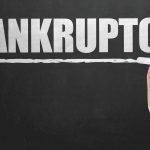Chapter 7 Bankruptcy is that part of the United States Bankruptcy Code that deals with liquidation, which means the selling of all non-exempt assets by a court appointed trustee. The proceeds of the sale are used to pay creditors. In return, a debtor receives a discharge, which releases a debtor from all dischargeable debts and orders creditors to forever stop their attempts to collect the discharged debts.
When a debt is discharged, a debtor is forever relieved of the obligation to pay that debt. Not all debts are dischargeable. Non-discharged include certain taxes, alimony, child support, student loans, debts that have not been listed in the Chapter 7 petition, and debts which have been incurred as a result of either an intentional tort or the defrauding or misleading of a creditor.
